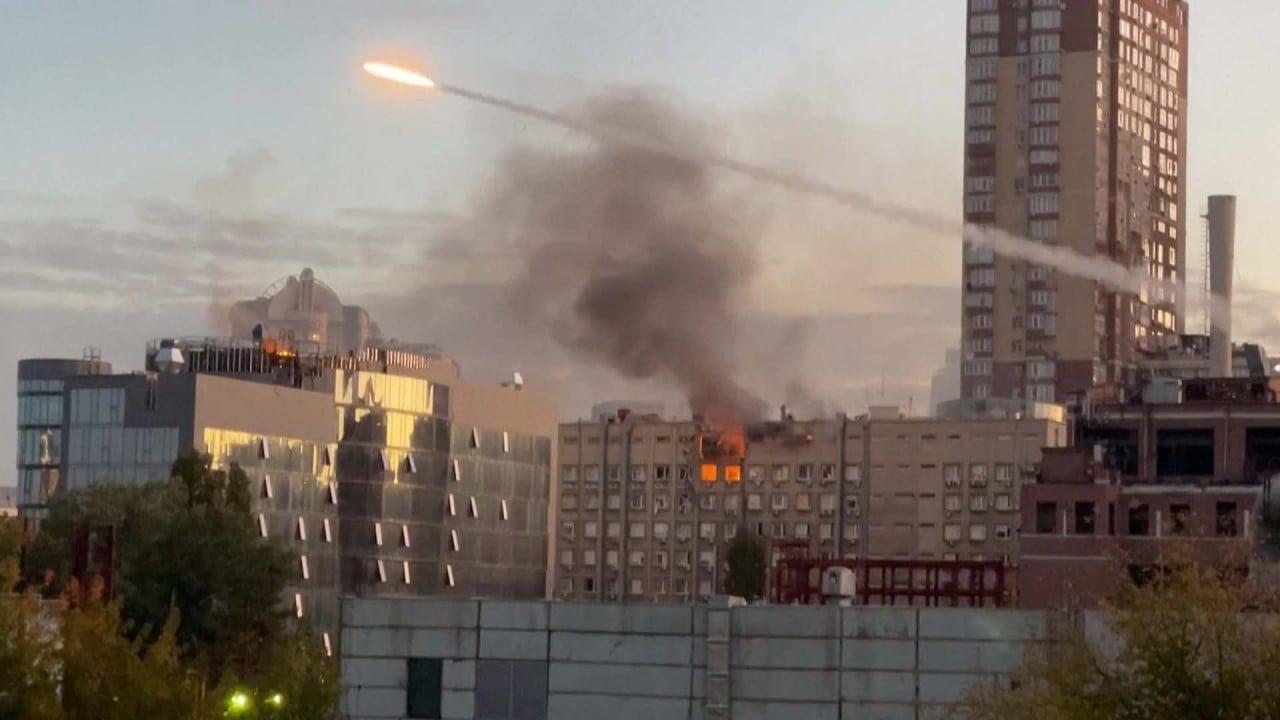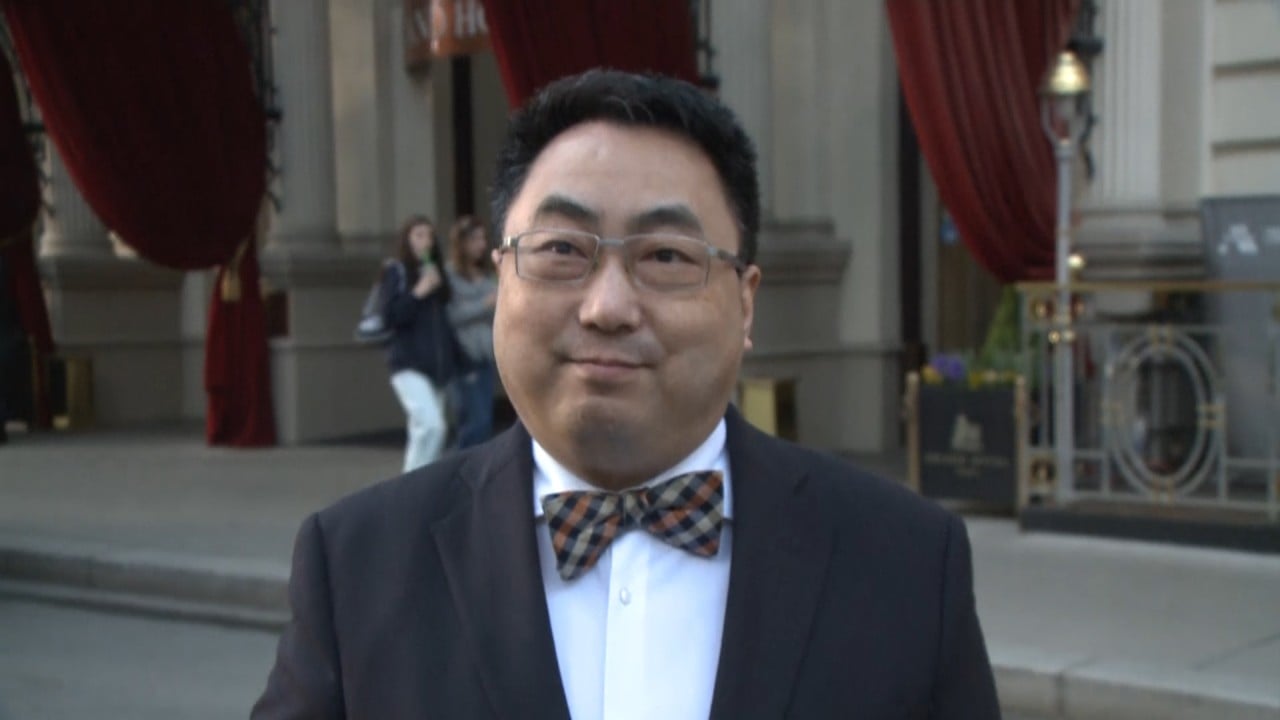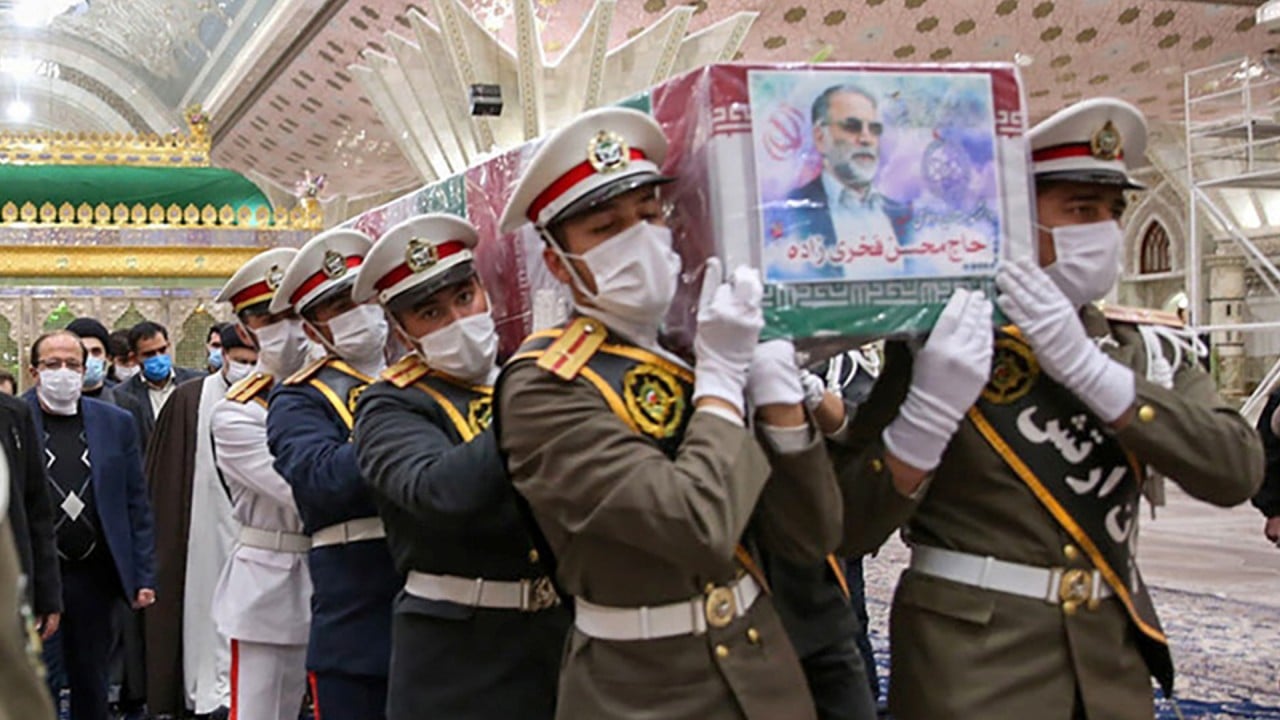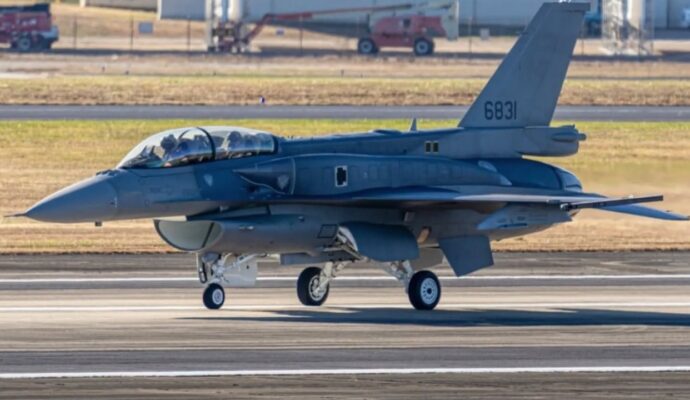
In an opinion piece ahead of his visit for People’s Daily – China’s Communist Party mouthpiece – Raisi voiced joint opposition to hegemony and interference by foreign powers, in a reference to both countries’ opposition to the US-led Western sway over world affairs.
“Iran and China believe that unilateralism and violent measures, such as the imposition of unjust sanctions, are the main source of a world fraught with crises and insecurity,” he wrote.
“Both China and Iran are unanimous in stressing that all countries should work together to achieve true multilateralism, international justice and a just international order in the world.”
Days before Raisi’s visit, the US imposed sanctions on seven Iranians for their involvement in Tehran’s drone and ballistic missile programmes, which Washington said was being used by Russia to target critical infrastructure in Ukraine.
Tehran says its sovereignty claims over the islands of Abu Musa and the Greater and Lesser Tunbs in the Strait of Hormuz, which it took control of in 1971, are non-negotiable.
Fan Hongda, professor at the Shanghai International Studies University’s Middle East Studies Institute, said economic cooperation and the revival of the Iran nuclear deal would be high on the agenda for Raisi.
Signed in July 2015 between Iran and several world powers, including the US, the deal aimed to restrict Tehran’s nuclear programme in exchange for sanctions relief, but was stalled when the US backed out.
According to Tehran’s semi-official Mehr News Agency, the delegation of senior officials accompanying Raisi includes ministers in charge of foreign affairs, economic affairs, urban development, oil production, and the mining industry, as well as the governor of Iran’s central bank.
Ali Bagheri Kani, Iran’s deputy foreign minister for political affairs and top nuclear negotiator, is also part of the team.
“From this list, it’s not hard to see in which areas the two sides are going to hold discussions and in which areas the two sides are more likely to achieve progress,” Fan said.
China and Iran signed a landmark 25-year strategic cooperation agreement in March 2021, in a move drawing scrutiny from the US.
Details of the agreement have not been revealed, but the Chinese foreign ministry said at the time that the deal would expand bilateral cooperation on energy, infrastructure, production capacity, science and technology, as well as medicine and healthcare.
Ma Xiaolin, an international relations scholar at Zhejiang International Studies University in Hangzhou, said Iran might also seek China’s support to “break the US-led [economic] blockade and to overcome the country’s increasing isolation, particularly to see if it can make a breakthrough and bypass US financial sanctions through trade, investment and energy cooperation with China”.
Iran holds the world’s third-largest oil and second-largest natural gas reserves, according to the US Energy Information Administration, but US sanctions have crippled most of its energy exports, and the Covid-19 pandemic has left its economy facing a severe downturn.
Ma said Raisi may also seek China’s help to revive the negotiations to return to the Joint Comprehensive Plan of Action – commonly known as the Iran nuclear deal – which former US president Donald Trump abandoned in 2018.
China had played a crucial role in cutting the deal in 2015.
As Russia – another signatory to the Iran nuclear deal – is now locked in a severe confrontation with the US and other Western powers after its invasion of Ukraine, there are concerns over further uncertainties in Iran’s trade and investment ties with Moscow, with Russia likely to use the nuclear talks as a new bargaining chip with the West, according to Ma.
“Iran doesn’t want the nuclear negotiation derailed,” Ma said.



